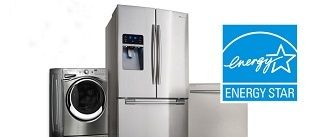From Guest Blogger Jen: How Green Can Your Home Be?

So, How Green Can Your Home Really Be?
Here are 5 easy ways you can save energy and make your home as green as possible:
-
Switch to Energy Efficient Lighting
Incandescent light bulbs have become obsolete, but they are still being used in far too many homes. Making the switch to compact fluorescent bulbs, LEDs or halogens can make your home more energy-efficient. And because these bulbs are so much more efficient and last so much longer than traditional incandescent light bulbs, they can also save you a surprising amount of money. According to ENERGY STAR, making the switch can save you between $30 and $80 over the lifetime of each bulb.
-
Make Less Trash
One of the best ways you can make your home a greener place is to cut down on the amount of disposable products you use. This might seem like a challenge at first, but you can keep an enormous amount of trash out of your local landfill by using wash cloths instead of paper towels, reusable storage containers instead of zipper bags and old-fashioned dinnerware instead of paper plates. Perhaps the best switch you can make is to stop buying bottled water, and instead carry a refillable water bottle. The same goes for paper coffee cups. A lot of coffee shops will actually offer you a discount for bringing in your own container, because using fewer disposable cups saves them money too. If you’re looking for more ideas, The Simple Dollar provides a whole list of disposable items you can stop using to make your home more eco-friendly.
-
Reduce Hot Water Usage
According to the U.S. Department of Energy, hot water accounts for about 12 percent of the average family’s utility bills. You can save big and help the environment at the same time by using less hot water. This can be as simple as taking shorter showers or using cold water to wash laundry. You can also reduce energy costs by turning the temperature on your water heater down to 120ºF. Every 10ºF you turn down your water heater can save you 3 to 5 percent on your water heating costs.
-
Start a Garden
Growing your own produce can save you quite a few trips to the supermarket, not to mention the more intangible benefits, like quality time in the outdoors and the satisfaction of nursing a plant from seedling to entrée. Crops like tomatoes, peppers, peas, beans, carrots, squash and salad greens are easy to grow in backyards and container gardens. You can make your garden even greener by saving food scraps for compost and collecting rain water to keep your plants hydrated. Penn State provides some great resources for eco-friendly gardening.
-
Update Your Garage Door
The garage is an often overlooked area of the home, but the EPA offers several ways to make your garage greener. One of the best is to update your garage door. Insulated garage doors prevent heat transfer, reducing the amount of heating and cooling energy lost through your garage. This can significantly reduce your heating and cooling costs year-round. Even better, you can invest in a new eco-friendly garage door made from recycled materials. Installing a garage door can be a difficult job, and having an experienced contractor handle the installation can make the process go much more smoothly.
